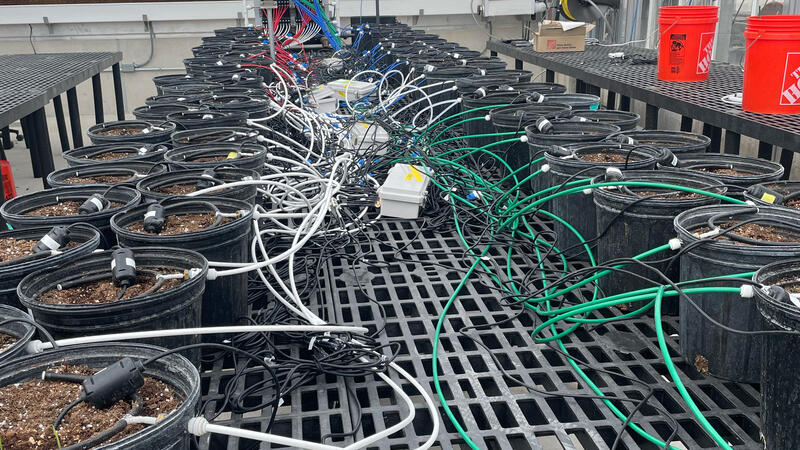News
Sustainable Bioenergy Cropping Systems
Timing is everything: How drought affects switchgrass
Scientists evaluated how switchgrass responded to drought stress at distinct stages of development — vegetative growth, flowering, and when leaves and shoots die off in the fall (senescence) — and the effects on fermentation of plant sugars. The findings suggest that the timing of drought stress has little impact on plant size but does change fermentation rates. Drought during the growing stage can make plants more hardy at the expense of biofuel production, while late-season drought enhances ethanol yields.
Planting bioenergy crops such as switchgrass and prairie along with crops like corn and soybeans can limit erosion, rebuild soil carbon, and promote natural pest control. Deciding where and how to plant these crops involves tradeoffs between environmental benefits and profit. A new computer model balances economic, biodiversity, greenhouse gas, and water quality objectives to determine the best possible layout based on the chosen goals.
UW–Madison graduate student Sam Davison hopes to make the world seem a little more interesting and people feel a bit less pessimistic. If someone learns some science along the way, that’s just a bonus.
Samatha Kelly is a first year PhD student in the Donohue and Noguera labs. She works in late-stage bioprocessing, engineering microbes to break down complex plant structures like lignin and to separate the most useful products.
With a focus on hydrocarbon fuels and chemicals made from non-food plants, the Bioenergy Research Centers are developing a portfolio of plant-based products, methods, and tools for use in an emerging U.S. bioeconomy.
Management techniques that boost organic carbon and nitrogen will help farmers deal with production and environmental challenges that come with greater climate variability and mitigate climate change by storing more carbon in soil. Yet there have been few long term studies comparing how different land management and crop systems affect organic matter.
Fox, the Marvin J. Johnson Professor in Fermentation Biochemistry and chair of the biochemistry department, was among four faculty selected by their peers as winners of the 2025 Hilldale Award.
There are different ways to estimate the effect of bioenergy crop systems on global warming, but they don't always agree, and no one has done a direct comparison. Here, scientists compared three approaches on three crop systems over 13 years at a single experimental site.
GLBRC scientists combined machine learning and automated testing to streamline the tedious process of finding the right green solvent for isolating valuable bioproducts.
University of Wisconsin–Madison scientists used advanced microscopic imaging to better understand the structure and function of these granules and their roles in microbial biology. They found that stunting cell growth caused bacteria to accumulate significantly more PHB and PP concentrated in larger granules, suggesting the organelles play a role in stress response.
Two scientists with the Great Lakes Bioenergy Research Center have been elected to the American Academy of Microbiology.





